
"They are heroes who fell ill while saving others. Theoretically, all their medical expenses are covered by their employers, but in fact, many of them are suffering from poverty and inadequate care," said Fang.
Wu Zhen, 37, is among the dozens of medical workers who were left unable to work.
When the SARS scare seized Beijing, Wu, a nurse at a community hospital in the southern Fengtai District, was receiving on-the-job training by working as an intern at the emergency ward of the downtown People's Hospital.
"I had close contact with many fever patients every day," Wu said. She and her colleagues had all heard of SARS, but thought it had little to do with them. A mask and a pair of disposable gloves were their only protection.
Wu was one of more than 90 doctors and nurses who were infected at the People's Hospital as a result of inadequate protection.
Seven months after she was treated for SARS, Wu was diagnosed with severe osteonecrosis. Since the small hospital where she worked could not afford to cover all her medical expenses, she waited until after the city government offered free medication for SARS sequelae in 2005.
She has spent the past five years in the hospital -- not as a nurse, but as a patient. She has received two surgeries to replace her thighbones, with the most recent surgery performed only last month.
Wu tried to seek compensation and was frustrated by the buck-passing that occurred between the hospital that employed her and the People's Hospital where she was infected. Her colleagues donated 60,000 yuan, which covered her medical bills for two years.
Unable to work, she is paid 1,700 yuan (275 U.S. dollars) a month. Beijingers' average monthly income was 4,672 yuan in 2011, the most recent time that such data was made available.
Wu is single and often feels gloomy and isolated. "I wish I could fully recover, go back to work, get married and live like an ordinary woman," she said.
A nurse who shared a ward with Wu said she worries that her employer might eventually abandon her.
"In the wake of the SARS outbreak they called me a 'hero' and promised to help me out," the nurse said on condition of anonymity. "But today, few people still remember me and it's increasingly hard to get the aid I need."
"We just did our job and never thought we were heroes," she said. "But we hope that our sacrifices were not in vain and that our woes will be heard and addressed properly so that our colleagues will still stand up and do their job in case of future epidemic outbreaks."
WHERE IS HOPE?
Fang and his friends surveyed 110 SARS sequelae patients from 87 families in 2006 and found that 88 percent of them were unable to work or even take care of themselves. The average age of these patients, however, was only 43.7 years at the time.
Most patients are in dire need of financial aid. "About 45 percent of them have retired because of advanced age or illness, and 31.8 percent are jobless," said Fang.
In 2008, the government granted an annual subsidy of 4,000 yuan for each patient, as well as a greater subsidy of 8,000 yuan for those who are unemployed.
The patients' average annual income was only 9,051 yuan in 2006, a quarter of Beijinger's average per capita wage for that year, according to Fang's survey.
A government-funded free medication package for SARS sequelae patients covers only five drugs for osteonecrosis and lung diseases. But many patients also suffer other diseases, including hypertension and heart disease.
Over 80 percent of the patients said they want their medical expenses to be refunded, as well as continuous financial aid to sustain their future medication needs.
Ninety percent said they need more government subsidies to support their families, as well as state compensation for SARS-inflicted deaths and permanent injuries, particularly for SARS infections that happened inside hospitals.
Fang said the results of the survey have been reported to Beijing health authorities and several other government agencies. "Several meetings were called with us, but few policy changes have been made," he said.
"Ten years on, it's high time to look back and draw a lesson," said Fang. "SARS victims have paid a heavy price and have brought about some social progress. The SARS scare prompted China to improve its disease prevention and control system by building more quarantine wards, training more medical workers and promoting pandemic awareness."
Fang and about 100 other SARS sequelae patients meet once a month to discuss their problems and seek comfort from each other. Fang has spoken out on their behalf to dozens of journalists and has appeared in newspapers, magazines and TV.
"I want to call for more aid to improve their lives," said Fang. "I hope the public will not forget us or the painful lesson we learned."
Last year, a Chinese pharmaceutical firm offered to set up a special fund for SARS sequelae patients and reached a related deal with the Beijing welfare fund for disabled people.
"It was set up in September for a one-year term," said Li Xuemei, secretary-general of the fund.
The fund has so far handed out cash to 89 patients, said Li.
"The amount is small, but conveys a clear message of love and care," she said. "The practice is also a very good supplement to the government-funded compensation package," said Li.
(Li Yahong, Lai Zhen and Li Wen also contributed to this story.)


Latest development of H7N9 in China[Special]

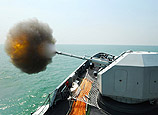
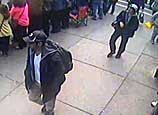
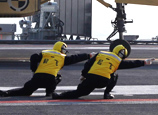
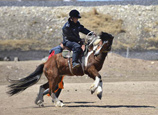
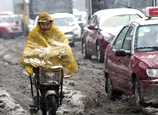
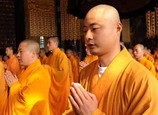

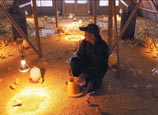
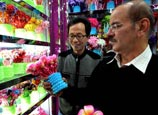






 Snowfall hits Taiyuan, N China
Snowfall hits Taiyuan, N China


![]()
